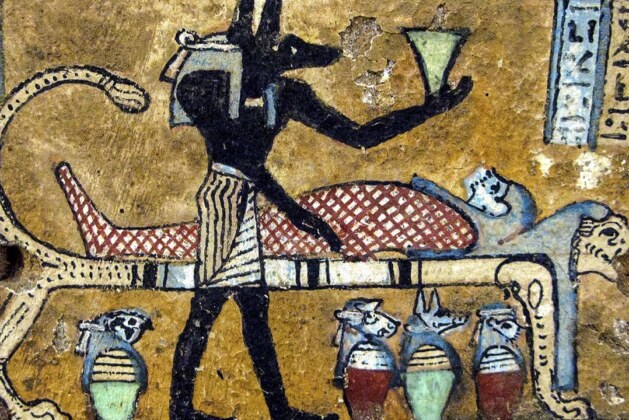Long before modern hospitals and scientific labs, the ancient Egyptians practiced a form of medicine that was surprisingly advanced for its time. With a blend of spiritual belief, herbal knowledge, and early surgical techniques, their approach to health care laid the foundation for many medical principles we still use today. In this article, we explore the fascinating world of Ancient Egyptian medicine—its methods, tools, and how it influenced future civilizations.
Table of Contents
Introduction: A Civilization of Science and Spirit
When we think of Ancient Egypt, images of pyramids, pharaohs, and mummies often come to mind. But what many don’t realize is that this incredible civilization also made major strides in health and healing. Dating back more than 4,000 years, Egyptian medicine was a mix of practical treatment and spiritual ritual. They believed that disease was often caused by spiritual imbalances, but they also relied heavily on observation, diagnosis, and even surgery.
The Dual Nature of Ancient Egyptian Medicine
Egyptian medicine was rooted in two main beliefs:
- Supernatural Causes – Illness was often thought to be the result of evil spirits, curses, or the anger of gods.
- Natural Remedies – Despite spiritual beliefs, Egyptians used herbs, surgery, and hygiene-based practices grounded in observation and experience.
This combination of mystical and practical medicine made their healthcare system both unique and surprisingly effective for the era.
The Role of Physicians and Priests
Medical practitioners in Ancient Egypt were often priests trained in healing arts. Temples acted as early hospitals, and specific gods, like Imhotep—a real historical figure later deified—were worshipped as patrons of medicine.
There were also specialists:
- Dentists for oral issues
- Proctologists, referred to humorously in records as “Shepherds of the Anus”
- Eye doctors
- Surgeons
Many of these physicians received training and followed texts like the Ebers Papyrus, which detailed hundreds of remedies and diagnoses.
Herbal Remedies and Natural Treatments
Egyptian healers relied heavily on plants, minerals, and animal products. Some of their known remedies include:
- Garlic and onion – Used to boost immunity and treat infections
- Honey – Applied to wounds as a natural antiseptic
- Aloe vera – For burns and skin conditions
- Willow bark – Contained salicylic acid, a key ingredient in modern aspirin
- Pomegranate and castor oil – Used to treat digestive issues and parasites
What’s remarkable is that many of these ingredients are still used in modern natural medicine.
Surgical Techniques and Anatomy
While limited compared to today’s standards, the Egyptians did perform basic surgeries and understood some anatomy, especially due to their mummification practices. Embalmers gained knowledge of the internal organs and developed techniques for preservation that involved removal of organs and use of antiseptics like natron.
They also:
- Treated wounds with stitches and dressings
- Set broken bones using splints
- Drained abscesses
- Performed trepanation (drilling holes into the skull)
Medical Texts: The First Medical Records
Egyptians were among the first to document their medical knowledge. Some of the most famous texts include:
- Ebers Papyrus – Over 700 remedies and procedures (c. 1550 BCE)
- Edwin Smith Papyrus – Focused on trauma surgery, with a logical approach to diagnosis and treatment
- Kahun Gynecological Papyrus – Detailed women’s health, fertility, and pregnancy care
These writings provide a window into how systematic and organized ancient medical knowledge could be.
Hygiene and Public Health
Cleanliness was a major part of Egyptian life. Doctors emphasized hygiene as a way to prevent illness:
- Frequent bathing in the Nile or with natron
- Use of linen bandages to cover wounds
- Clean living environments, especially for the wealthy
- Regular tooth-cleaning with powders and sticks
This focus on hygiene was centuries ahead of many other civilizations, including medieval Europe.
Influence on Greek and Modern Medicine
The medical practices of Ancient Egypt greatly influenced Greek medicine, particularly the works of Hippocrates and Galen. Greek scholars often studied in Egyptian temples and adopted their methods into Western medicine.
In fact, much of what we consider the roots of clinical observation and diagnosis began in the Nile Valley.
Conclusion: Ancient Wisdom, Timeless Impact
Ancient Egyptian medicine was more than just myth and ritual—it was a sophisticated system built on experience, experimentation, and early science. While not perfect, their practices were incredibly advanced for their time and laid the groundwork for many aspects of modern medicine.
By studying their methods, we gain not only historical insight but also a deeper appreciation for the human pursuit of healing—one that began thousands of years ago and still continues today.
Read More: 66 Million Years Ago: How a Catastrophe Changed Life on Earth Forever




